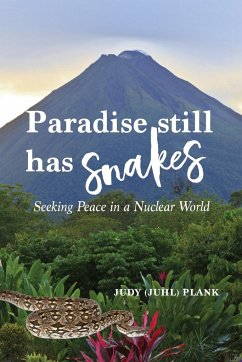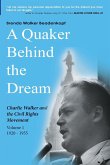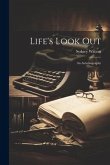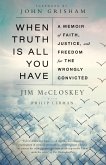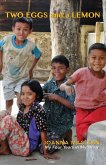Welcome to Paradise. A sign at Tabacon Springs Resort in the tropical Paradise of Costa Rica reads: "Dear Guest: This is an area of possible volcanic activity. Please follow all safety measures as instructed in the event of an emergency. Acts of nature and those caused by disregard of safely precautions are not the responsibility of the management. Thank you for your visit." Paradise is easily lost, not only by a natural event, but by war, the annihilation of whole peoples and their cultures, or individual or government actions. Like the Tabacon Springs management, no one takes responsibility for the consequences. This book recounts the life of Judy Plank, a Quaker observer and activist for peace and social justice, who was born the same year as the atomic bomb. Her story begins with the history of her family, who were forced from Paradise by wars on two continents in the mid-1800s. For most of her life she's lived far from the centers of power, in Siouxland, in the American Great Plains. Her book chronicles her heart-led activism and candidly recounts her courageous and principled struggle to live a life of peace within a troubled family and world of injustice and war. Journal excerpts, newspaper articles, and poems intersperse the author's narrative of her half century of participation in non-violent protests to reverse some of the deadly trends unfolding in our world. Her activism began during the Vietnam War and continued through the Women's Peace Encampment, Nuclear Freeze Campaigns, the farm crisis of the 1980s , and actions supporting migrants on the U.S./Mexico border and paths to citizenship for those brought to this country as children. Her deeply held convictions compelled her not only to participate in demonstrations but to two arrests: protesting shipments of nuclear weapons from an upstate New York military depot to Europe during the cold war, and in Minneapolis, protesting Honeywell's manufacture of triggers for nuclear weapons and other military weaponry. Her political activism led to a moment of fame, when she was invited to introduce presidential candidate Bernie Sanders at a campaign rally in Sioux City, Iowa. During winters on the U.S./Mexico border, the author observed migrants crossing the border through a deadly desert, fleeing economic devastation caused by NAFTA, as well as war and natural disasters. "To leave our land is to suffer," lamented one of many migrants she met. For decades the "little red coat" she found in the desert, left behind by a migrant family either heading north, being returned to Mexico by Border Patrol, or even perishing in the desert heat, has reminded her of the tragic plight of innocent children brought over the border by desperate parents, and impelled her to continue her work for justice and compassion. The author strives imperfectly to live out in her daily life the peace she values. Woven into her story are candid accounts of a troubled family life and the decades-long struggle of her entire family to cope with the consequences of their children's and grandchildren's addictions to alcohol and drugs. She observes that each of us has a different vision of Paradise, from the tropical Paradise of Costa Rica, to a utopian community, to a harmonious world of peace, to our own backyard garden. The snake tempted Adam and Eave, the black snakes of pipelines crossing continents, and our fear of snakes are all much different from a view of snakes as symbols of wisdom or regeneration, or messengers of necessary change for the better. This is the story of a thoughtful and high-spirited modern-day woman of conscience and conviction. Judy Plank is still working to eliminate nuclear weapons in her lifeti
Hinweis: Dieser Artikel kann nur an eine deutsche Lieferadresse ausgeliefert werden.
Hinweis: Dieser Artikel kann nur an eine deutsche Lieferadresse ausgeliefert werden.

